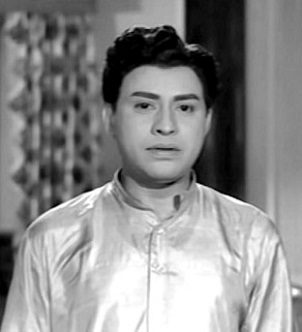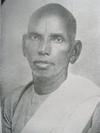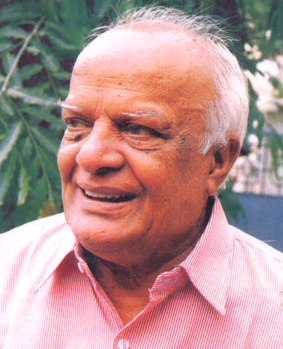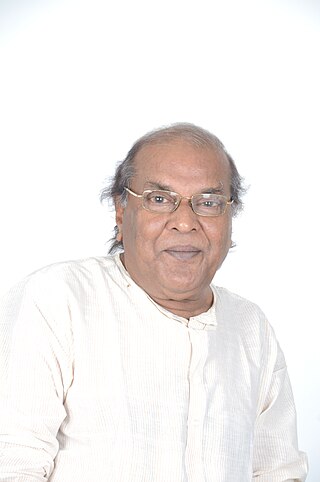Related Research Articles

Nandamuri Taraka Rama Rao, often referred to by his initials NTR, was an Indian actor, filmmaker and politician who served as Chief Minister of Andhra Pradesh for seven years over three terms. He starred in over 300 films, predominantly in Telugu cinema, and was referred by the media as Viswa Vikhyatha Nata Sarvabhouma. Rao received three National Film Awards for co-producing Thodu Dongalu (1954) and Seetharama Kalyanam (1960) under National Art Theater, Madras, and for directing Varakatnam (1970). Known for his breakthrough performances in Raju Peda (1954) and Lava Kusa (1963), Rao garnered the Nandi Award for Best Actor for Kodalu Diddina Kapuram in 1970, and the Inaugural Filmfare Award for Best Actor – Telugu in 1972 for Badi Panthulu.

The Telugu Desam Party is an Indian regional political party with great influence in the states of Andhra Pradesh and Telangana. It was founded by the former chief minister of Andhra Pradesh N. T. Rama Rao (N.T.R.) on 29 March 1982 and has focused on supporting Telugu speakers. The party has won a five-time majority in the Andhra Pradesh Legislative Assembly and has emerged as the most successful political outfit in the state's history. It is currently the main opposition party in the Andhra Pradesh Legislative Assembly.
The Politics of Andhra Pradesh take place in the context of a bicameral parliamentary system within the Constitutional framework of India. The main parties in the state are the YSR Congress Party, Telugu Desam Party and Jana Sena Party. Other parties that have small presence in the state include the Indian National Congress, Bharatiya Janata Party and Left parties.

Kongara Jaggayya was an Indian actor, littérateur, journalist, lyricist, dubbing artist and politician known for his works predominantly in Telugu cinema and Telugu theatre. He was known as Kanchu Kantam Jaggayya (Telugu) for his booming voice. In a film career spanning forty years as a matinee idol, he starred in eighty films, as a lead actor, and lead antagonist in a variety of genres. In 1967, he was elected as a member of the fourth Lok Sabha, from the constituency of Ongole, becoming the first Indian film actor to be elected as a member of the Parliament.
Jalagam Vengal Rao or Jalagam Vengala Rao was for much of his life a member of the Indian National Congress and was the Chief Minister of the Indian state of Andhra Pradesh which is now divided into two states, Telangana and Andhra Pradesh.

The Ramineni Foundation was founded in 1995 by the children of the late Ramineni Ayyanna Choudary in Cincinnati, Ohio, USA for the purpose of protecting and promoting the monumental heritage of Indian culture and the ideals of Hinduism. In addition, the primary mission of the foundation is to facilitate the valiant, relentless and altruistic efforts of all those high priests drawn from a cross-spectrum of fields in arts, science and humanities.

Konda Venkatappayya or Konda Venkatappaiah B.L. (1866–1948) was a noted Indian lawyer, freedom fighter, and politician from what is now Andhra Pradesh. He was one of the founders and the first editor of Krishna Patrika, a leading weekly Telugu magazine during the early 20th century.

Balantrapu Rajanikanta Rao was an Indian writer, composer and poet in the Telugu language. He was the son of Balantrapu Venkatarao, one of modern Telugu poet-duo "Kavi Rajahamsa" Venkata Parvateswara Kavulu. He won several national and state level awards for his work. He died in April 2018 at the age of 98.

Dukkipati Nageswara Rao was an Indian independence movement activist from Krishna District.
Jandhyala Papayya Sastry was an eminent Telugu writer and lyricist. He was popularly known as Karunasri because his writings expressively show compassion, one of the nine Rasas. His famous kavyas include Pushpa Vilapam and Kunthi Kumari.
Baddam Yella Reddy was an Indian communist politician from Telangana. He was one of the prominent leaders in the Telangana armed struggle against the Nizam regime.
Katti Padma Rao is a Dalit poet, scholar and activist from Andhra Pradesh, India. He is the founding general secretary of Dalit Mahasabha, a people's organisation that spearheaded the Dalit movement in Andhra Pradesh in the aftermath of the 1985 Karamchedu massacre in the coastal region of that state. A scholar in both Telugu and Sanskrit, he has published several volumes of poetry, and books on sociology, religion, philosophy, history, and women's studies. He is a regular columnist in major Telugu newspapers and magazines.
Duggirala Gopalakrishnayya, was an Indian freedom fighter and member of the Indian National Congress from the southern Indian state of Andhra Pradesh. Known by his title of Andhra Ratna (Telugu: ఆంధ్ర రత్న, translates to "Jewel of Andhra" or "Gem of Andhra." Sri Duggirala Gopalakrishnayya, Gopalakrishnayya was the first Andhra leader to become secretary of the All India Congress Committee. Sri Duggirala Gopalakrishnayya, was a very captivating poet, speaker, songwriter, philosopher, singer and an extraordinary revolutionary with a philosophy of non-violence. Sri Nadimpalli Venkata Lakshmi Narasimha Rao worked in tandem with Sri Duggirala Gopalakrishnayya. For his exemplary work and sacrifices for freedom movement in Andhra, he was fondly conferred the name 'Andhra Ratna'
Punyamurthula Suryanarayana Murthy, known by his screen name Chitti Babu, is an Indian actor and comedian, known for his works predominantly in Telugu cinema. He is the brother of noted comedians Raja Babu and Ananth Babu.

Vegunta Mohan Prasad, was a Telugu poet, critic, translator and writer. He was known by his pen name 'Mo'.

Mahidhara Nalinimohan was an Indian space scientist and writer from Andhra Pradesh. He wrote many articles on popular science in Telugu. His father Mahidhara Rammohan Rao was a noted novelist, journalist and freedom fighter.

Vavilikolanu Subba Rao or Andhra Valmiki or Vaasu Daasa Swami was a Sanskrit scholar and a Telugu poet, often known by the epithet Andhra Valmiki.

Sripada Subrahmanya Sastry (1891–1961) was a Telugu writer from Andhra Pradesh. His predominant works include short stories, novels, literary essays. He also performed Avadhanam. He is called Adhunika Katha Chakravarthy because of his contributions to Telugu literature. He translated entire Valmiki Ramayana into Telugu prose. He ran a magazine called Prabuddha Andhra for 9 years.
Velcheru Narayana Rao is an Indian author, critic, and literary translator. He is a professor at the University of Wisconsin–Madison in the Department of South Asian Studies. His work is primarily focused on Telugu literature for which he received the Sahitya Akademi Fellowship, the highest honour conferred by Sahitya Akademi, in February 2021.
References
- 1 2 "Noted Space scientist and writer passes away". The Hindu . 23 October 2005. Retrieved 22 September 2017.[ dead link ]
- ↑ Ramaswamy, Gita. "A forgotten masterpiece". thehindu.com. The Hindu. Retrieved 6 May 2017.
- ↑ Datta, Amaresh (1988). Encyclopaedia of Indian Literature. Sahitya Akademi. p. 1363. ISBN 9788126011940 . Retrieved 6 May 2017.